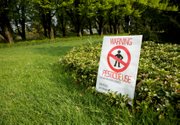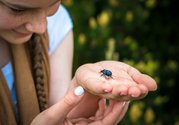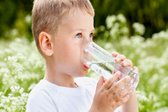There are many beautiful yards in our area that prove that pesticide-
free yards are perfectly possible, and are not difficult to achieve.
Avoid Pesticides
They Are Not Just Killing Pests
If we buy toxins to control “pests” in our gardens, is it any wonder that they do their job and kill plants and beneficial insects? Pesticides and herbicides, both conventional AND organic, work so well that in the last 20 years the worldwide bee population has declined by over 40% and the butterfly population by 60%. Bird populations that rely on these pollinators to feed their young, and humans who depend on the same pollinators to grow our food, are impacted as well.


Concerning Results
Pesticides are linked to these devastating declines, as well as to human cancers, hormone imbalances and neurological impairments. Yet, American homeowners purchase more than one billion pounds of pesticides every year. This, combined with the overuse of herbicides (including the very toxic glyphosate - marketed as RoundUp) have caused our lawns to become the biggest, most toxic, ‘crop’ in the USA.
The Opposite Effect
Most homeowners are not aware that more than 90% of a pesticide application does not reach its actual target, but ends up in our waterways, killing other organisms and harming ourselves. Pesticides create a deadly cycle by doing exactly the opposite of what they were intended to do: promote the growth of pests by eliminating their natural predators.
The Wrong Direction
There is plentiful evidence of the negative impacts to humans, their pets and wildlife from pesticides and herbicides. While many countries have drastically limited or banned the use of these harmful pesticides, the US government is loosening its safety requirements, and postponing consideration of the possible dangers of these chemicals


Take The Pledge
Please join us, and take the pledge to take care of your yard without synthetic pesticides, weedkillers and fertilizers except on rare occasions to resolve an infestation or to improve habitat for native plants and wildlife. Visit: The Great Healthy Yard Project >
Beyond Pesticides > Signs and Flyers to use in your Neighborhood > Pest Problem Solver > EPA Pestcides Fact Sheet > Kids and Pesticides > Pesticides and our Drinking Water > Pesticides and the loss of Insects and Wildlife > Risks of pesticides for Human Health > Pesticides and Pets > Organic Tick Control > Weed control without Pesticides > Benificial Insects that control Pests >

